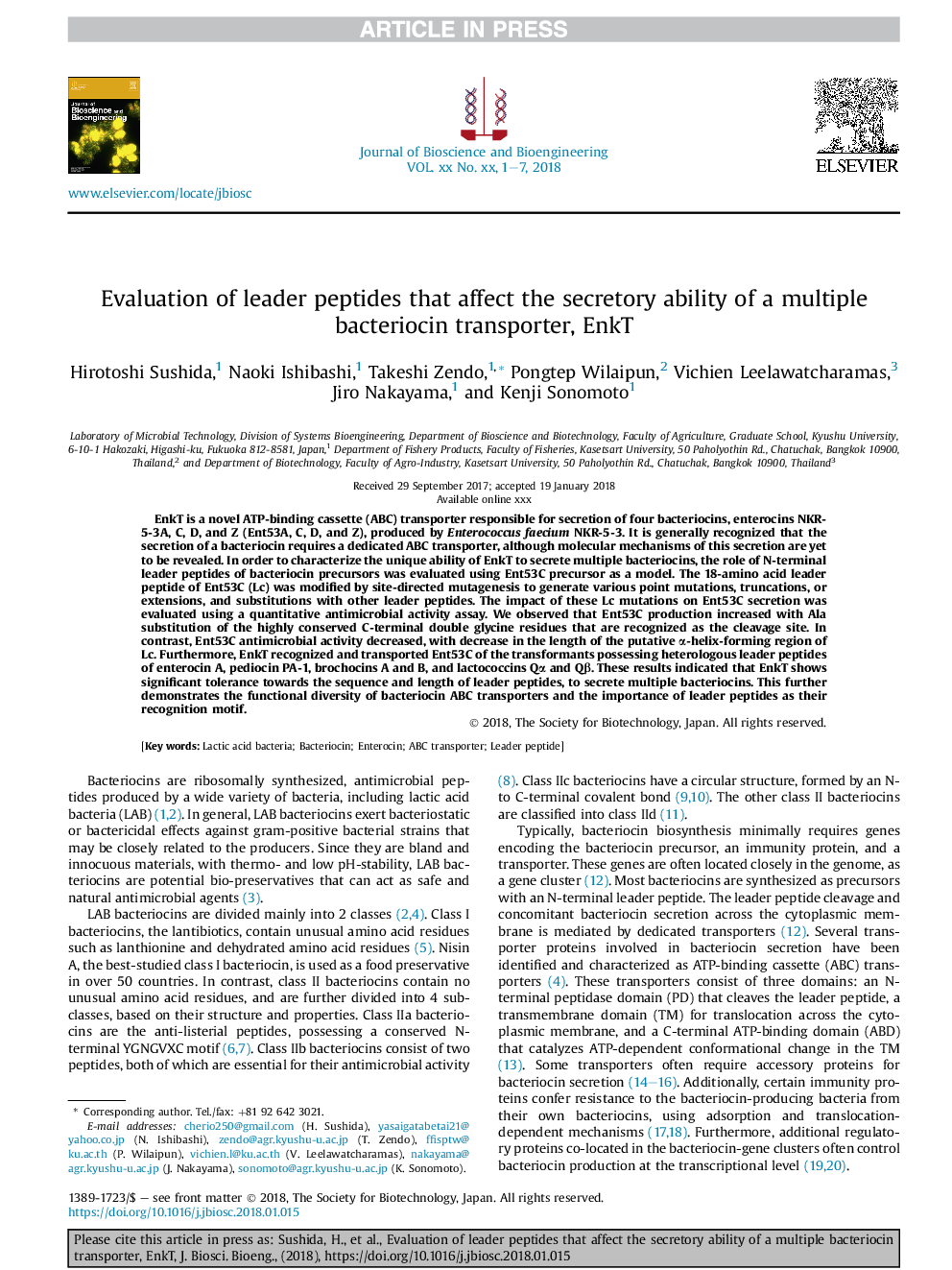| Article ID | Journal | Published Year | Pages | File Type |
|---|---|---|---|---|
| 6489700 | Journal of Bioscience and Bioengineering | 2018 | 7 Pages |
Abstract
EnkT is a novel ATP-binding cassette (ABC) transporter responsible for secretion of four bacteriocins, enterocins NKR-5-3A, C, D, and Z (Ent53A, C, D, and Z), produced by Enterococcus faecium NKR-5-3. It is generally recognized that the secretion of a bacteriocin requires a dedicated ABC transporter, although molecular mechanisms of this secretion are yet to be revealed. In order to characterize the unique ability of EnkT to secrete multiple bacteriocins, the role of N-terminal leader peptides of bacteriocin precursors was evaluated using Ent53C precursor as a model. The 18-amino acid leader peptide of Ent53C (Lc) was modified by site-directed mutagenesis to generate various point mutations, truncations, or extensions, and substitutions with other leader peptides. The impact of these Lc mutations on Ent53C secretion was evaluated using a quantitative antimicrobial activity assay. We observed that Ent53C production increased with Ala substitution of the highly conserved C-terminal double glycine residues that are recognized as the cleavage site. In contrast, Ent53C antimicrobial activity decreased, with decrease in the length of the putative α-helix-forming region of Lc. Furthermore, EnkT recognized and transported Ent53C of the transformants possessing heterologous leader peptides of enterocin A, pediocin PA-1, brochocins A and B, and lactococcins Qα and Qβ. These results indicated that EnkT shows significant tolerance towards the sequence and length of leader peptides, to secrete multiple bacteriocins. This further demonstrates the functional diversity of bacteriocin ABC transporters and the importance of leader peptides as their recognition motif.
Related Topics
Physical Sciences and Engineering
Chemical Engineering
Bioengineering
Authors
Hirotoshi Sushida, Naoki Ishibashi, Takeshi Zendo, Pongtep Wilaipun, Vichien Leelawatcharamas, Jiro Nakayama, Kenji Sonomoto,
